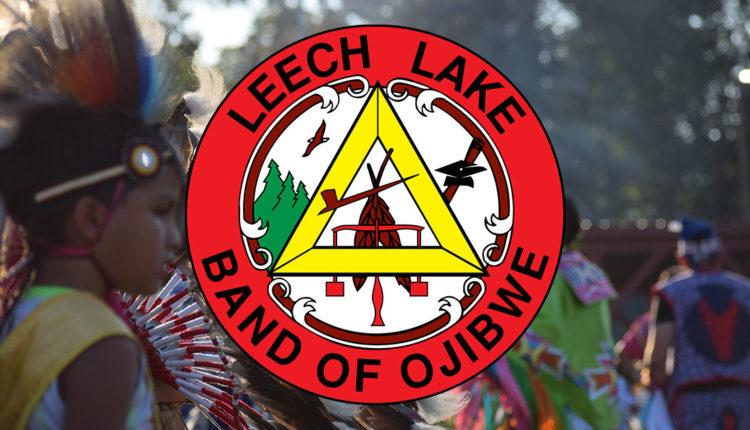CASS LAKE – The Leech Lake Band of Ojibwe recently received notification that it has been awarded a substantial grant as part of the Tiwahe Initiative expansion, led by the Bureau of Indian Affairs (BIA). This pivotal funding is set to address a wide array of pressing challenges faced by the community, underscoring the tribe’s unwavering commitment to uplifting its members and preserving its rich cultural heritage. The tribe is expected to receive $500,000 in the first year and $1 million in each subsequent year for the duration of the program.
From Gathering Insights to Taking Action
The journey began in July 2023 when the Leech Lake Band of Ojibwe was selected to participate in the Tiwahe Incubator Program. This initial $100,000 award was strategically reinvested across all 17 communities within the reservation to organize social and cultural events. These gatherings serve a dual purpose – bolstering community involvement and collecting invaluable input regarding community service requirements.
These events emphasize the significance of inter-departmental collaboration, recognizing the varied needs of all age groups, from youth to elders. LLBO staff have been working closely with each Local Indian Council to ensure meaningful engagement within each community.
Key Activities and Outcomes
The Tiwahe Initiative is the driving force behind a series of initiatives that aim to reshape the Leech Lake community:
Tiwahe Steering Committee: A key cornerstone of the plan, this committee consists of key stakeholders representing various departments. Its role is to spearhead data-driven decision-making processes, drive organizational transformations, engage with the community, and safeguard the confidentiality of tribal data. The increased community engagement is expected to empower individuals, strengthen community bonds, and enhance participation.
Knowledgeable, Empowered, and Economically Secure: Leech Lake aims to broaden educational horizons, offering opportunities like vocational training, life skills coaching, financial literacy sessions, homeownership seminars, job search strategies, and leadership development workshops across all communities. The primary objective is to enhance educational access, impart essential life planning skills, boost financial understanding, and reduce homelessness.
Culturally and Spiritually Connected/Stewards of Natural Resources: The tribe is committed to safeguarding its cultural heritage and natural resources. Plans include the establishment of a Cultural Department to assist programs in embedding cultural elements within their frameworks and a dedicated language department to revitalize the Ojibwe language. These initiatives aim to foster a stronger sense of identity among community members, enhance community engagement, deepen understanding of traditional values, medicines, and foods, and fortify the preservation of indigenous knowledge and sacred sites.
Coordinated Service Delivery Model: Investment in staff capacity and professional development is a top priority. LLBO aims to pinpoint areas requiring quality improvement, technological advancements, and training to address communication barriers. The goal is to integrate services, offering culturally supportive and coordinated wrap-around services with flexibility to meet individual needs.
Participation in Communities: A client tracking management system will be introduced to facilitate collaboration and communication among Leech Lake’s service programs. This system will streamline intake processes and enhance accessibility for community members. Additionally, plans are underway to establish a Wellness Center in Cass Lake, designed to promote community engagement in sports and cultural activities.
Encourage Healthy Lifestyles: The tribe aims to rejuvenate and integrate Ojibwe culture, history, language, and traditional activities into youth and social services initiatives. These efforts seek to promote physical well-being, mental and behavioral wellness, alcohol and substance-free lifestyles, access to health services, and the availability of traditional and fresh foods. Support for staff well-being is also on the agenda to prevent burnout and maintain the delivery of compassionate services.
Safe And Equitable Justice and Social Welfare Systems: Plans involve hiring attorneys and an additional judge to address child welfare cases and expand wellness courts. The tribe seeks to create cultural alternatives to incarceration, reduce criminal incidents, and enhance avenues for support, advocacy, and reentry.
Safe Nurturing Relationships and Connected Families: Additional staff members will be hired to increase support to Leech Lake foster families and families involved in child welfare. Intensive wrap-around and follow-up services are planned to build resilient families.
A Collective Effort for a Brighter Future
As the Tiwahe Initiative takes shape, community members are invited to actively engage, collaborate, and contribute to the collective mission of building a stronger, healthier, and more resilient Leech Lake community.
While the challenges are substantial, the dedication of tribal leaders, community partners, and the support of the Tiwahe Initiative funding offer promise for a thriving and culturally vibrant Leech Lake Reservation.
The road ahead is one of collaboration, resilience, and cultural preservation, and the Leech Lake Band of Ojibwe is poised to meet these challenges head-on for the betterment of its community and generations to come.
About the Tiwahe Initiative
The term “Tiwahe” originates from the Lakota language, embodying the concept of family and highlighting the intricate interdependence among all living entities. It also underscores an individual’s duty to safeguard not only their kin but also the community and the natural world.
The Tiwahe Program builds communities of hope by cultivating culture and connection. Tiwahe fosters systemic change in the delivery of services to children and families through the integration of Tribal practices, customs, values and traditions. Tiwahe is made up of several components, which work together to protect and promote the development of prosperous and resilient Tribal communities.
Learn more at: https://www.bia.gov/tiwahe

